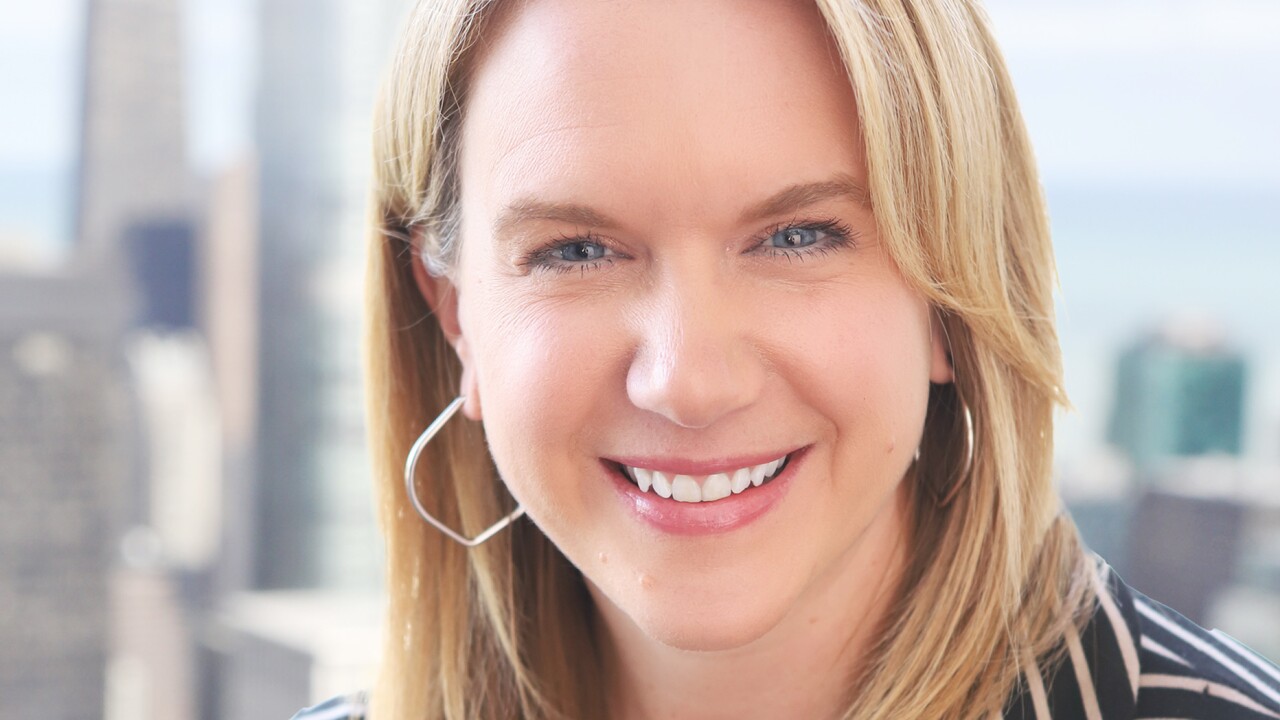-
Evidence of abuses and self-dealing in force-placed insurance suggests there may be far larger problems in how servicers are handling home loans than sloppy document recording.
November 9 -
The proposed attorneys generals' settlement of mortgage servicing practices threatens a high-margin business that brings in hundreds of millions of dollars every year for servicers.
March 10 - PH
The 27-page term sheet handed to the five largest mortgage servicers last week is a detailed, dense list of requirements that, if implemented as proposed, would fundamentally change the relationship between servicers, investors and borrowers.
March 7
The first time Luis Juarez heard of force-placed insurance was when he received a $25,000 bill for it in the mail.
A Florida doctor and homeowner, Juarez had been dropped by his previous insurer over a roofing issue. Though that lapse violated his obligation under the mortgage to maintain coverage on the property, he was current on his loan payments and heard nothing from the servicer Wells Fargo & Co. for more than a year.
Then on May 10, 2010, Juarez got a note from QBE Specialty Insurance, a partner of Wells. It said that QBE was retroactively charging him $25,000 for a policy that had expired two months earlier, according to court filings.
Neither the price tag — nearly quadruple his original policy's rate, according to court papers — nor the expired status of the QBE policy were a mistake.
The use of carriers like QBE adds another public wrinkle to the controversy over banks' imposition of homeowners coverage, because the carriers are unregulated in major states such as Florida. Wells Fargo, SunTrust Banks Inc. and others are buying what is called "surplus-line" insurance, which is neither governed by state premium caps nor guaranteed by state funds. That leaves the insurer free to charge whatever rates it pleases — and to share some of the proceeds with banks through payments to their affiliates.
Force-placed insurance is already under fire from a coalition of state attorneys general because it burdens troubled borrowers with expensive premiums, provides inferior coverage and often dumps the cost on mortgage investors at the time of foreclosure if borrowers failed to pay the premiums. In the process, banks reap lucrative commissions from insurers.
Though there is no evidence that the banks sought surplus-line coverage because of its potential to carry higher prices, borrower advocates say that the companies' use of unregulated carriers exposes homeowners and mortgage investors to higher costs and greater risk in the event of a catastrophe. Moreover, some question whether banks' agents are making the mandatory effort to seek coverage from regulated insurers first.
QBE is "more aggressive in placement, and their pricing is worse," said Jeffrey Golant, a Florida attorney who recently filed a lawsuit on behalf of Juarez and others alleging that Wells Fargo and QBE engaged in self-dealing and charged unreasonable premiums. "There is no regulation of their rates at all, and they appear to believe that being surplus lines allows them to do anything they want."
According to the lawsuit, which seeks class-action status, the premiums were nearly four times those for the policy Juarez had bought through a state-run company that normally charges Florida's maximum legal rate. Wells Fargo said that the Juarez case was "unique" in that the lapse in voluntary coverage was not detected for well over a year.
"Wells Fargo wants to assure that our customers have continuous hazard insurance coverage," a spokeswoman said. "In rare instances, when there is a failure of notification from a prior carrier, it can take some time to recognize the lack of coverage."
Representatives of QBE declined to answer questions about why it has chosen to sell force-placed insurance as a surplus-line provider, and refused to say in which states it operates on a surplus-line basis. Wells and SunTrust defend the propriety of their practices.
Force-placed insurance is lucrative for mortgage servicers. An American Banker
Out of concern that banks were unfairly profiting from struggling homeowners, state attorneys general are now seeking to restrict the practice. The terms of a proposed mortgage servicing settlement would prohibit servicers from accepting "commissions," "referral fees," or "kickbacks" in relation to the policies, and prevent banks from force-placing policies when voluntary coverage could simply be extended.
Those terms would drastically alter an industry that until recently received little attention from regulators or the public.
"Generally, we have concerns about consumers being compelled to pay substantially overpriced insurance premiums, particularly in cases where consumers are already under financial stress," a spokesman for Iowa State Attorney General Tom Miller wrote in an email to American Banker in March.
"People in default are an easy mark," said Margery Golant, Jeffrey Golant's mother and an attorney who was among the first to draw attention to the widespread use of force-placed insurance in the wake of the housing collapse. "Practically every single person who is in default has one of these, and most of the time [borrowers] don't even tell us about it unless we ask. And I have seen instances where borrowers who were performing were pushed into default by force-placement."
NO LIMITS
Though QBE maintains regulated and unregulated arms in many jurisdictions, it appears to sell force-placed insurance solely as a surplus-line product in Florida, Texas and perhaps other states.
It is not possible to evaluate how QBE's rates stack up against other insurers in Florida because its surplus-line status means it does not have to disclose such data. Given that servicers regularly receive a percentage commission on the policies, there is little financial incentive for banks to press for low prices or show restraint when issuing policies.
A review of a handful of QBE cases being litigated in Florida supports this view. In a second case involving Wells, documents show the bank imposed retroactive coverage on a borrower of $1,743 a month — more than the borrower's monthly principal and interest payment. Annualized, the premiums amounted to more than a quarter of the borrower's outstanding mortgage principal, a lawsuit filed by Jeffrey Golant, the Miami law firm Kozyak Tropin & Throckmorton and two other plaintiffs law firms alleges.
"We are confident that all of our vendors are operating in accord with applicable laws in each state," a spokeswoman for Wells told American Banker. The company said it buys force-placed policies from QBE only on the minority of loans it has purchased from correspondents, meaning that only borrowers whose mortgages were originated by other lenders can be force-placed with a carrier whose rates are not regulated. For the rest of Wells' portfolio, it partners with Assurant Specialty Property, which is subject to rate limits in all states.
In other instances, banks partnering with QBE have forced borrowers to pay for insurance in excess of their property's value. In one example, insurance notices show QBE forced a SunTrust Mortgage Inc. borrower to buy a $230,000 insurance policy — on a house that the Broward County, Fla., property appraiser lists as worth less than $82,000. Should the borrower eventually fail to pay QBE the $10,000 annual premium, the government will, in the form of losses to Fannie Mae, which guarantees the mortgage.
Margery Golant said the QBE insurance wasn't the first force-placed policy levied on the home in the above example, just the most expensive.
"She had force-placed coverage prior to QBE," Margery Golant said of the borrower. "But QBE was the most outrageous by a mile."
SunTrust declined to discuss its relationship with QBE or the cost of its insurance. Generally, "SunTrust takes appropriate steps necessary to protect the value of collateral consistent with our responsibilities to our shareholders and as required by our investor agreements," a spokesman said by email.
Others in the industry cautioned against jumping to the conclusion that all high prices were abusive. Reinsurance is not always available in hurricane-prone states, meaning that the insurer must charge high premiums to compensate for the exposure.
"You get on the coast, you can't find reinsurance. It does get kind of crazy," said Skip Davis, a senior vice president of Plateau Group, a firm that helps community banks acquire force-placed insurance for their portfolios. Most players in the market are judicious about imposing policies, he said, and the price of the insurance is rightly higher than for voluntary coverage, given the extra risks involved.
But Davis said that some of the QBE rates appeared to be remarkable, even for Florida. Regarding the $25,000 in retroactive premiums, "any halfway smart banker is going to say, [the borrower] can't afford that," he said.
QBE'S ADVANTAGE
QBE's sale of unregulated insurance in Florida is something of an oddity. State laws generally give preferential status to admitted carriers with regulated rates, and Florida statutes mandate that surplus coverage should only be purchased when coverage is "not procurable from authorized insurers." Insurance agents must document multiple "diligent efforts" to find a regulated carrier before venturing into the surplus-line market.
To someone outside the Florida industry, finding an admitted force-placed insurer wouldn't seem like a problem. Two large insurers, Assurant Specialty Property and Balboa Insurance Co., sell such coverage. Balboa, formerly owned by Bank of America Corp., is in the process of being purchased by QBE, a unit of QBE Insurance Group Ltd. of Australia, and declined to comment. But while Assurant is the largest operator in the Florida market, agents doing business with QBE aren't seeking Assurant out before placing new coverage, the company said.
"No, this does not happen," Assurant spokeswoman Shawn Kahle wrote to American Banker when asked if the company was regularly contacted by insurance agents making a diligent effort to find regulated insurance. "While we don't speculate or comment on competitors, at Assurant Specialty Property we believe being an 'admitted carrier' is the right approach to take if possible."
Wells said that it always buys rate regulated coverage when it is available, though QBE does not offer it in every state.
One possible reason why the agents buying QBE insurance might not be checking with QBE's competitors is that they appear to work for QBE.
Several notices of coverage viewed by American Banker all listed an employee for Sterling National Insurance Agency Inc., a QBE subsidiary, as both the basic "producing" agent and the surplus-line agent for the coverage. The agent, Michael Seminario, declined to speak with American Banker.
Because state limits on Assurant's pricing restrict the commissions it pays to bank clients, a case can be made that Assurant's regulated status is a competitive disadvantage.
"If there's the ability to write coverage on a nonadmitted basis, then definitely there's an advantage to a company like QBE," said David Blades, an insurance analyst for A.M. Best.
QBE's deal for Balboa, which generated $1.5 billion of gross premiums last year, would make it one the biggest force-placed insurers in the U.S. It's unclear how the company will manage its future force-placed sales in Florida and elsewhere once the purchase is complete. Belinda Miller, a deputy commissioner of the Florida Office of Insurance Regulation, said she doubted QBE would switch Balboa's existing force-placed portfolio over to surplus lines, though she said the company has not indicated its plans.
Neither QBE nor Bank of America, which will distribute its insurance, offered any comment. But insurance industry analysts said they believed QBE was in the middle of a big push to expand its market share.
"I think when the Balboa deal closes we'll get a better sense of how they're looking at this short and long term, of how they're going to attack the market," Blades said.





